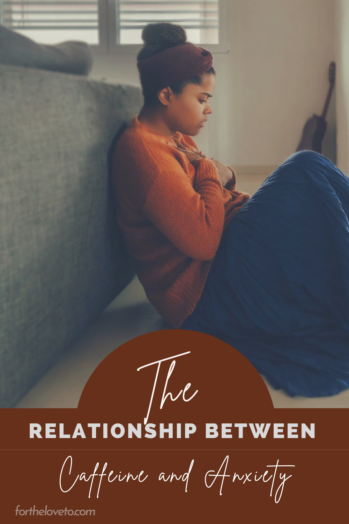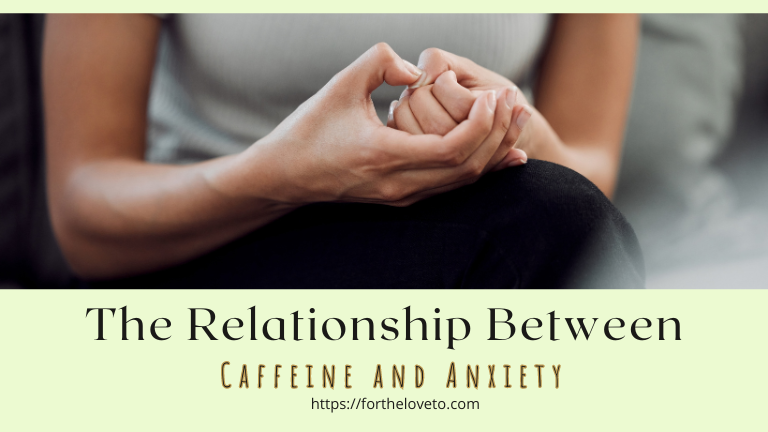For many of us, caffeine is an essential part of our daily routine. We rely on it to wake us up in the morning, help us stay focused throughout the day, and even to give us a much-needed energy boost in the afternoon. But what many people don’t realize is that caffeine can also have some less-than-desirable side effects, one of which is anxiety. In fact, studies have shown that there is a direct relationship between caffeine consumption and anxiety levels. So if you’re someone who struggles with anxiety, you might want to reconsider your morning cup of coffee.
How Caffeine Affects Anxiety Levels
There are two main ways that caffeine can contribute to anxiety: by exacerbating existing anxiety symptoms and by causing new symptoms. For those who already suffer from anxiety, caffeine can make their symptoms worse. This is because caffeine is a stimulant, and when taken in large enough quantities, stimulants can mimic the symptoms of anxiety disorders such as panic attacks and generalized anxiety disorder. Caffeine can also lead to new anxiety symptoms in people who don’t suffer from anxiety disorders. These symptoms include jitteriness, irritability, and restlessness.

5 Habits to Reduce Anxiety
Although anxiety is a normal emotion that everyone experiences at some point in their lives, it can become a problem when it starts to interfere with everyday activities. If you find yourself feeling anxious more often than not, there are several habits you can adopt to help reduce anxiety and get back to feeling like yourself again.
1. Get regular exercise. Exercise releases endorphins, which have mood-boosting effects. Just 30 minutes of moderate exercise (such as walking) three to five times per week can make a significant difference in how you feel.
2. Make time for relaxation. Dedicating even just 10-15 minutes each day to relax can do wonders for your anxiety levels. Try deep breathing exercises, reading, listening to music, or any other activity that helps you feel calm and relaxed.
3. Eat a healthy diet. Eating nutritious foods helps your body to function at its best, which can in turn help reduce anxiety levels. Be sure to include plenty of fruits, vegetables, and whole grains in your diet, and limit sugary and fatty foods as much as possible.
4. Get enough sleep. When you’re tired, it’s easier to feel anxious and stressed out. Aim for seven to eight hours of sleep each night so that your body has time to rest and recharge.
5. Connect with others. Social interactions can help reduce anxiety by providing a distraction from anxious thoughts and allowing you to share your feelings with others who understand what you’re going through. Whether you interact with friends, family members, or a support group, connecting with others can be very beneficial.

How Much Caffeine is Too Much?
So how much caffeine is too much? That depends on the person. Some people can drink several cups of coffee a day without any noticeable effects while others only need a single cup to start feeling anxious. If you’re someone who’s prone to anxiety, it’s best to err on the side of caution and limit yourself to no more than 200 milligrams of caffeine per day. That’s about the equivalent of one cup of coffee or two cups of tea.
A balanced intake of caffeine
While there are many potential benefits to drinking caffeine, it’s important to be aware of its potential drawbacks as well. If you struggle with anxiety, or even if you just tend to get anxious easily, it’s best to limit your caffeine intake to no more than 200 milligrams per day. Doing so will help you avoid any unwanted side effects and feel your best throughout the day. If the symptoms persist it is recommended that professional anxiety treatment is sought.

Thank you for supporting my blog! Please note that this post contains affiliate links, and I may receive payments for clicks, purchases, and/or registrations made through these links. It’s important to mention that ForTheLoveTo.com is a proud participant in the Amazon Services LLC Associates Program, an affiliate advertising program designed to provide a means for sites to earn advertising fees by advertising and linking to Amazon.com. Your support enables me to continue creating valuable content, and I genuinely appreciate it.

Discover more from For The Love To
Subscribe to get the latest posts sent to your email.



Love this post after taking your advice I’m much more relaxed
That’s true I can’t drink more than 2 cups of coffee a day or my anxiety really kicks in
Some great tips thanks for sharing